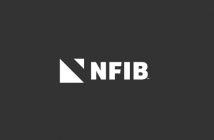The Technology Association of Oregon (TAO) continues advocating for tech companies to undertake diversity and inclusion training, which enables organizations to attract exceptional talent and consider new perspectives when making crucial business decisions. This forward-thinking approach is top of mind for Bend-based entities looking to reshape the narrative that operating within a rural tech ecosystem lacks openness to diversity of thought.
Beginning March 27 and extending through 2019, TAO will partner with Ranemaker Institute to host a series of ten, two-hour inclusive innovation workshops where experts run startups, small and medium-sized companies through hands-on exercises that help participants devise tactics to implement within their respective organizations. In the spirit of supporting all Bend companies, the workshops will be able to be applied to all industry sectors and not
just tech.
East Cascade Works, St. Charles Health Systems, Central Oregon Community College (COCC) and Oregon State University Cascades Campus’ Co-Lab highlight local companies who will partner on this workshop series.
Rane Johnson-Stempson, founder of Ranemaker Institute, notes the importance of attracting diverse top talent to Bend and teaching companies that cultivating an open work environment leads to higher employee and customer satisfaction.
“Forty-two percent of all minorities are looking to move to urban cities because they feel that rural and small towns don’t fit them i.e. markets, food that they eat, people like them,” says Johnson-Stempson. “We want to drive the idea of inclusive innovation and that we value everybody’s opinion. Diversity is more than just race and ethnicity: it’s looking at skills, abilities, experiences and ideas. You have people from all kinds of backgrounds and different generations working under one roof. So we hope to launch the series to dive into all these different challenges and help employees understand how they bring value to the table.”
The diversity and leadership series is tailored towards all industry sectors’ small and mid-sized operations as they often lack the capital to invest in a human resources department, or hire an innovation analyst who looks at a team’s efficiencies and examines if that team contains all the skill sets required to perform the desired output. Johnson-Stempson says she hopes companies evaluate as to whether their employee base trends towards thinking and agreeing accordingly, but also ensuring all voices and perspectives are valued and heard.
According to a McKinesy report, traditional diversity and inclusion training is not the sole element that equates to greater ROI, but rather the companies in the top quartile for gender, racial and ethnic diversity are more likely to have 35 percent greater financial returns above their national industry medians. In the end, these workshops will help companies drive greater profits and better products and services, not just
employee satisfaction.
With over 500 open jobs throughout Central Oregon in 2018, filling the talent gap remains a major priority for the region. The OSU-Cascades computer science department is working to expand its small program —
only eight graduates emerged from the most recent class — and placed all graduates with local companies.
“In Bend, we are going to continue growing and building inclusivity in our city council, chamber, community college and university as we attract diverse students and change the makeup of our education,” says Johnson-Stempson. If our companies can’t fill their open jobs then they will move to where they can fill those jobs. “We want our economy to grow and our citizens to prosper. As more people utilize resources like Apprenti, GreenFig, and OSU-Cascades to obtain the skills needed to work for local companies we need to attract diverse talent to fill the current demand.”
In addition to workshops, Ranemaker Institute will host three-hour advising sessions per month at COCC where companies can get one to one and one to many support on diversity and inclusion issues, including how hiring managers can remove biases when evaluating candidates and ensure they are fairly doing performance reviews and talent management. Companies will also learn how to encourage more collaboration across teams and measure creating effective inclusion best practices that grow business results.
More recently, Bend’s city council passed the Inclusive Innovation Resolution, declaring on March 7 the city will strive to become one of the most inclusive cities nationwide. As part of this initiative, a newly appointed diversity and inclusion council will meet quarterly to discuss issues the community can rectify, looking for creative solutions that will ensure diverse citizens needs are met.
“St. Charles is pleased to be a sponsor, participant in the workshop and committee as we know the importance of having a more diverse team and valuing diverse perspectives as we grow and meet the demands of the Central Oregon Community,” says Chief Operating Officer
Iman Simmons.
“My ultimate hope,” notes Johnson-Stempson, “is that people think of diversity and inclusion as not an HR compliance issue but it is built in the overall business strategy to drive prosperity in your company, where companies have the best partner and customer satisfaction with the most innovative product and services because all employee voices are valued and used to their full potential.
The Diversity and Leadership Series officially kicks off March 27 at OSU-Cascades’ Graduate Research Center Co-Lab from 1:30-3:30pm. Tickets cost $350 for the series or $40 for an individual class.
techoregon.org/events
Diversity & Leadership Series Looks to Help Companies Innovate, Attract Talent
0
Share.





